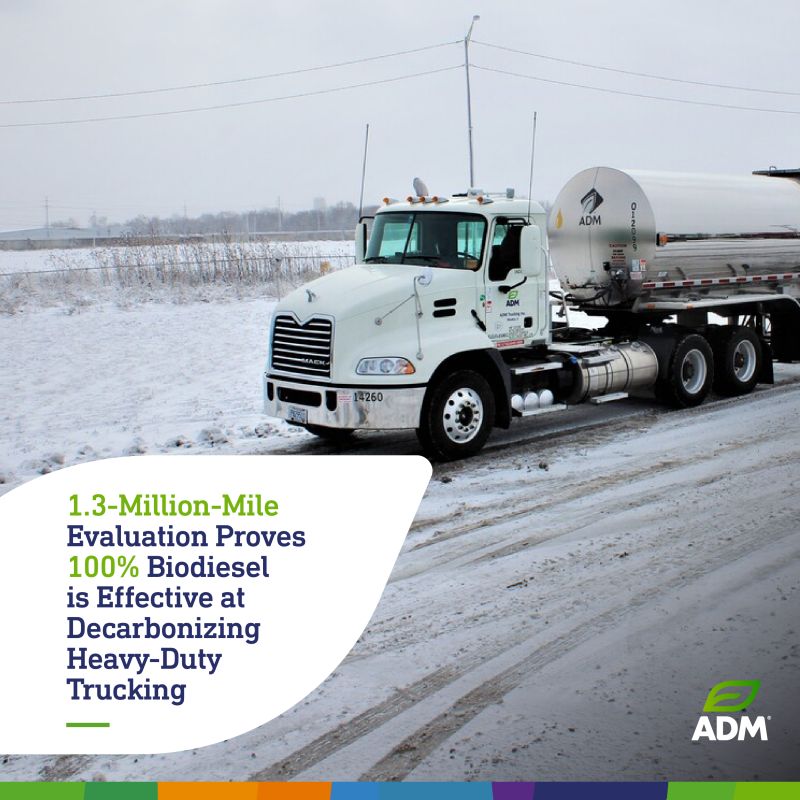- October 20, 2022
- By sturner@mosoy.org
- In News
- Tags cost-saving
- 779
- 0

Duty Trucking ADM conducts a 16-month field trial equipping Class 8 Mack trucks with Optimus Technologies Vector System
PITTSBURGH, PA – The Vector System is an advanced fuel system technology that enables heavy-duty diesel engines to reduce carbon emissions by using 100% biodiesel (B100). Already running on commercial and government fleets from Portland, Oregon to Washington, D.C., the Vector System reduces carbon emissions, in a cost-effective manner, in one of the most challenging industries to do so. Until recently, however, the technology had yet to be analyzed on large high-mileage over-the-road fleet applications.
On June 30, 2021, ADM, along with partners Optimus Technologies, Clean Fuels Alliance America, Decatur Mack, American Lung Association, Illinois Soybean Association, Missouri Soybean Merchandising Council, and others, completed an almost 1.3-million-mile field trial demonstrating the Optimus Vector System’s viability on Class 8 Mack tractor-trailers. Five B100 trucks were compared against a control group of five identical trucks that operated on ADM’s conventional diesel fuel, which is an 11% blend of biodiesel (B11). Both groups of trucks ran similar routes over like duty cycles and in the same conditions. Upon review of the data provided by the trial, the study confirmed the significant environmental and operational benefits of B100 as well as showcasing The Vector System’s ability to unlock these benefits for a new segment of heavy-duty transportation.
The Vector System B100 trucks reduced scope 1 carbon emissions by over 940 metric tons throughout the trial. Scope 1 emissions are direct GHG emissions that occur from sources that are controlled or owned by an organization and are typically the primary emissions source for companies with fleet operations to consider as they create sustainability and carbon reduction plans. In addition to deep decarbonization, The Vector System equipped trucks also saw an increase in fuel economy, a reduction in the ash accumulated in the diesel particulate filter (DPF), an overall reduction in the total number of active DPF regenerations, and improvements in a variety of engine crankcase oil parameters.
B100 is a solution that is working today, and this study has demonstrated in yet another use case, Optimus’ Vector fuel system technology can be relied on to help decarbonize heavy-duty fleet operations while technologies such as electrification and hydrogen are still decades away from being viable and are cost prohibitive for large scale use. For years, B100 has been in use in a range of municipal fleets such as DC Public Works, the City of Madison, Wisconsin, and the City of Ames, Iowa. Now, having been proven effective in commercial fleet operations, B100 is primed to bring its decarbonization benefits to over-the-road trucking.